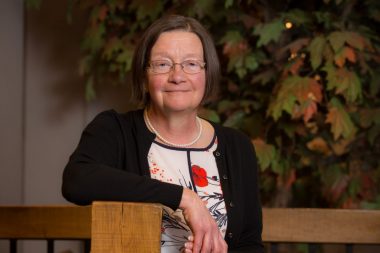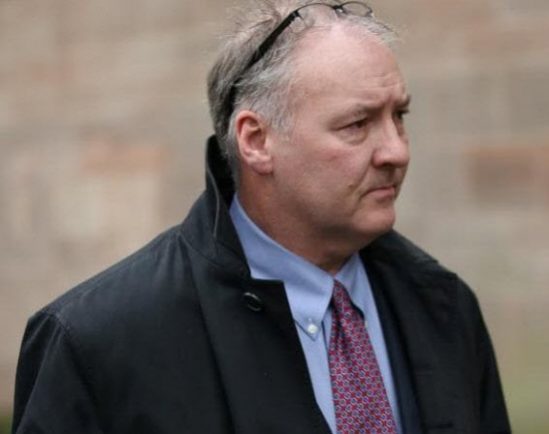AN independent national inquiry into the actions of rogue consultant breast surgeon Ian Peterson today revealed its findings.
Top NHS surgeon Paterson was found guilty of 17 counts of wounding with intent on April 28, 2017 at Nottingham Crown Court, and three of unlawful wounding.
He has been jailed for 20 years – after the original sentence was extended at appeal – for carrying out unnecessary surgery on patients who were left traumatised and scarred.
Right Reverend Graham James, Bishop of Norwich, led the inquiry, and found there was a ‘culture of denial’ which had enabled Paterson to carry out botched and unnecessary surgery on hundreds of women.
The independent inquiry has recommended his patients are recalled for re-assessment.
A colleague of Paterson has been referred to the police by the inquiry, and five others to health watchdogs.
Survivors gathered in Birmingham today as the long-awaited findings were delivered at a press conference at midday in the city.
The investigation’s report into Paterson’s malpractice was expected at the end of last year, but was postponed until today (Tuesday February 4).
On January 24, it was also announced that West Midlands Police has asked the Birmingham and Solihull Coroner Louise Hunt and the Area Coroner Emma Brown to initially review 23 cases where patients have died from breast cancer and who were previously treated by Paterson.
Paterson, whose patients are believed to exceed 1,000, worked at hospitals run by the then Heart of England NHS Trust and also practised privately at Bupa hospitals in Solihull and Sutton Coldfield, latterly run by Spire Healthcare.
Following his conviction the Royal College of Surgeons called for a review of safety standards in the private sector and greater transparency.
It said the private sector should be forced to report similar patient safety data as the NHS, including unexpected deaths and serious injuries.
New legislation to better regulate cosmetic surgery to ensure surgeons are properly qualified was also needed, said the surgeons.
That call has also come from lawyers representing the survivors.
Survivors also demanded Paterson’s ‘co-conspirators’ to be held to account after he exaggerated cancer risk to make patients go under the knife.
Bishop James, chair of the inquiry said: “Our report finds that patients were let down over many years by multiple individual and organisational failures. There was a culture of avoidance and denial, an alarming loss of corporate memory and an offloading of responsibility at every level.
“Patients were initially let down by Paterson when he performed inappropriate or unnecessary procedures and operations and they were let down both by the NHS and independent providers who failed to supervise him appropriately and did not respond correctly to well-evidenced complaints about his practice.
“Once action was finally taken, patients were again let down by wholly inadequate recall procedures in both the NHS and the private sector. When patients complained to regulators they were frequently treated with disdain. Finally, they were let down by a discretionary indemnity system that avoided giving compensation to Paterson patients once it was clear his malpractice was criminal.
“I would like to thank the patients who came forward to share their experiences with great courage and candour. Thousands of people are still living with the consequences of what happened.
“Without their willingness to relive these extremely harrowing experiences we could not have carried out our work. We hope that this report goes some way towards telling their stories and will make a significant contribution to improving safety for others in future.
“It is vital that Government, regulators and hospitals adopt our recommendations in full and use them as an opportunity to build a better and safer healthcare system.”
RECOMMENDATIONS
The report makes a series of recommendations based on the wide-ranging evidence given by patients, their families and other witnesses over the course of the Inquiry, including:
* The creation of a single repository of consultants’ practice setting out their practising privileges and key performance data that is accessible and intelligible to the public
* Making it standard practice for consultants to write to patients outlining their condition and treatment in simple language and copy this letter to the patient’s GP, rather than the other way round
* Ensuring that differences in the way care is organised in the NHS and independent sector is clearly explained to patients. This should include an explanation of how consultants are engaged at private hospitals including the use of practising privileges and indemnity, and emergency and intensive care
* The introduction of a short period for patients to reflect on their diagnosis and treatment options before giving their consent to surgery. This should be monitored by the GMC as part of ‘Good Medical Practice’
* Ensuring that every patient with breast cancer has their case discussed at a multidisciplinary (MDT) meeting in line with national guidance and that the Care Quality Commission (CQC) should assure itself that all providers are complying
* Ensuring that information is communicated more effectively about how to escalate a complaint to an independent body both in the NHS and independent sector, and that all private patients have the right to mandatory independent resolution of their complaint
* Mandating the recall of all Paterson patients by the University Hospitals Birmingham NHS Foundation Trust and Spire and ensuring every person has an ongoing treatment plan; alongside the introduction of a national framework to determine how recalls should be managed and communicated
* That Government reforms the regulation of indemnity products for healthcare professionals and introduces a nationwide safety net to ensure patients are not disadvantaged
* That the current system of regulation makes patient safety its top priority
* That when a hospital investigates a healthcare professional’s behaviour, if there is a perceived risk to patient safety, the healthcare professional is suspended and this is communicated to any other providers for whom they work
* That the Government addresses gaps in responsibility and liability between the NHS and independent sector as a priority
* That when things go wrong Boards apologise at the earliest stage of the investigation and do not hold back from doing so for fear of legal or other consequences
* That the Government mandates these recommendations across the independent sector as well as the NHS, as a condition of the independent sector delivering NHS funded care.
CASE STUDY:

One of Ian Paterson’s patients, Judith Eva Photo credit: Thompsons solicitors
RETIRED primary school teacher Judith Eva regards herself as “one of the lucky ones”.
The mother-of-two and grandmother from Knowle was referred to Ian Paterson after finding a lump in one of her breasts in June 2000.
Judith, now a piano teacher, who helps look after her two-and-a-half-year-old grand-daughter, said “I went to the GP and made an appointment to see Mr Paterson. My doctor told me Mr Paterson was brilliant at his job. I went to see him privately at Spire Parkway in Solihull.
“I saw him quite quickly, had a mammogram and he examined me. I had surgery to remove the lump and went back for the results within a fortnight. It was benign. He was charming, very nice and pleasant. I was so happy to get the results. But he didn’t tell me it was a cyst. I only later discovered 16 years later when I was shown the reports in 2016.
“In November 2002 I found another lump on the same breast. I went to see Mr Paterson again and he said: ‘this looks more sinister’. I was so worried. I had another operation.
“Paterson let me think the worst. It cause a lot of anxiety at the time as my mother, who has since died, had Alzheimer’s and my two children were in their early teens, aged 13 and 16.
“But it turned out the lump was just fibrous tissue. It was again 16 years later in 2016 that I found out.
“I had two operations I did not need. But I did not have a mastectomy. I was one of the lucky ones.”
Judith, who was diagnosed with Type 1 diabetes in 1978, had undergone previous operations associated with her condition, so two further “unnecessary” operations caused added stress.
It was not until 2016 following Paterson’s conviction that Judith was recalled and contacted Thompsons Solicitors.
Judith said: “I had been recalled by Spire Parkway in 2013 but didn’t receive the letter as I had moved from that address. In 2016 Spire Parkway made an appointment for me to see another breast surgeon. He had all my notes. It was only then I discovered the lumps were just cysts. It was a shock. You go and see a specialist for expertise, do not expect them to cause suffering. I don’t know how he got away with it.
“Following the inquiry I would like to hear everyone in the private sector singing from the same hymn sheet and all working together.”
More to come.









